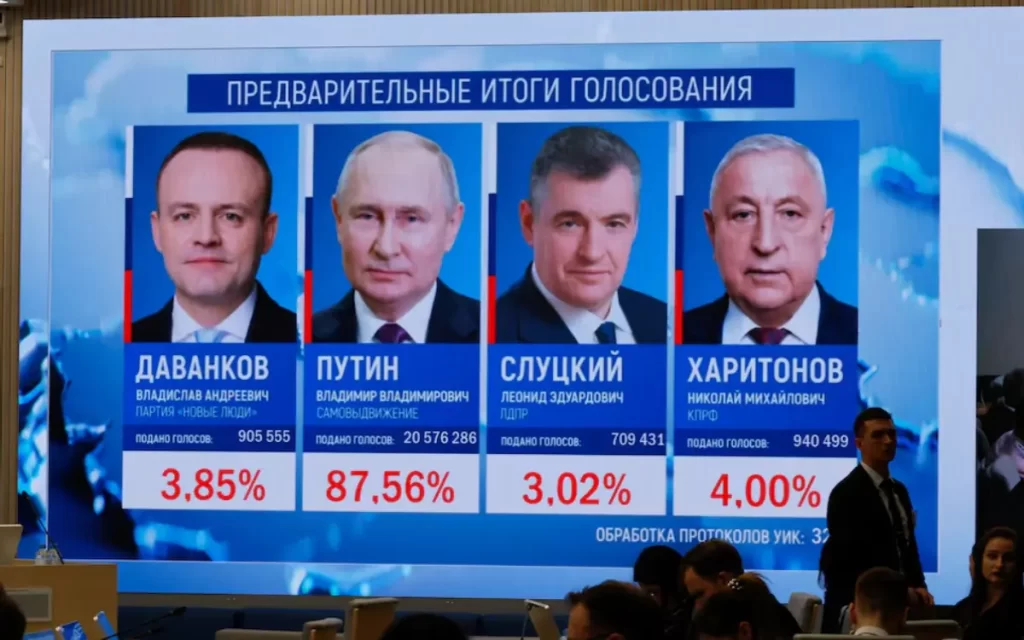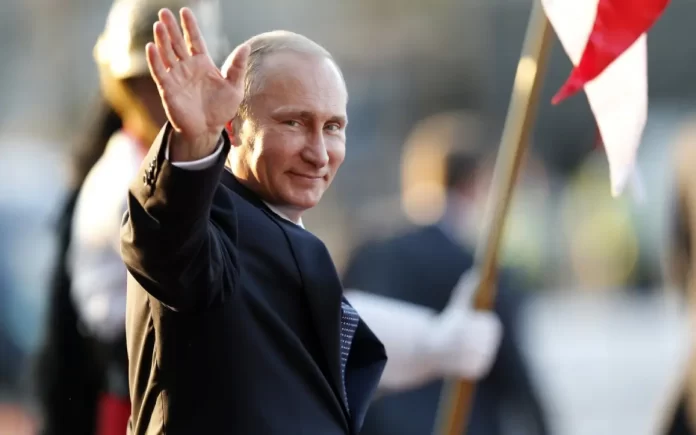Moscow: President Vladimir Putin clinched a historic post-Soviet landslide victory in Russia’s recent election, further solidifying his firm grip on power. Putin’s triumph, which he portrayed as a validation of Moscow’s assertive stance against the West and its intervention in Ukraine, underscored his enduring influence over the country’s political landscape.
This outcome solidifies Putin’s status as a long-standing figure in Russian politics. At 71 years old, he is set to commence yet another six-year term, potentially becoming Russia’s longest-serving leader in over two centuries. Should he fulfill this term, Putin will surpass the tenure of Josef Stalin, who held sway over the Soviet Union for 29 years, from 1924 to 1953. Stalin, renowned for his formidable authority, simultaneously held pivotal positions as the General Secretary of the Communist Party of the Soviet Union and the Chairman of the Council of Ministers of the Soviet Union. Now, Putin’s impending tenure places him on track to exceed Stalin’s record, marking a significant milestone in Russian political history.

Putin’s journey to power traces back to 1999 when he assumed a prominent role as one of Russia’s deputy prime ministers. Handpicked by Boris Yeltsin, Putin was later elevated to the position of acting Prime Minister, paving the way for his succession as Yeltsin’s chosen successor.
After Yeltsin’s unexpected resignation in December 1999, Putin stepped into the role of acting President. His subsequent election in 2000 marked the beginning of his first presidential term, which lasted until 2004. He was then re-elected for a second term, serving until 2008.
Adhering to legal limitations on consecutive terms, Putin assumed the position of Prime Minister from 2008 to 2012 during President Dmitry Medvedev’s tenure. This tactical maneuver paved the way for Putin’s return to the presidency for a third term, which he secured in 2012. In 2018, Putin secured his fourth term as President of Russia. His victory in the 2024 Presidential Election marks his fifth term in office.
Read More: Putin Warns of Dire Consequences in Conflict with NATO, Secures Historic Election Victory
With a resounding 87.8% of the vote, as per an exit poll by the Public Opinion Foundation (FOM), Putin achieved the highest-ever result in Russia’s post-Soviet history. The Russian Public Opinion Research Centre (VCIOM) similarly reported Putin’s support at 87%, with official results aligning closely with these figures.
However, several nations, including the United States, Germany, and the United Kingdom, decried the election as neither free nor fair due to the incarceration of political adversaries and instances of censorship.
While Putin’s re-election was widely anticipated given his entrenched control over Russia, the former KGB operative aimed to demonstrate overwhelming popular backing. Turnout reached 74.22%, surpassing levels from 2018, with younger demographics notably visible at polling stations across major cities, including Moscow and St. Petersburg.
Despite Putin’s decisive victory, opposition protests mounted, inspired by the late Alexei Navalny, who died in custody last month. Navalny’s passing has left a void in the opposition’s leadership, with major figures either imprisoned, exiled, or deceased.
The West continues to view Putin with skepticism, branding him an autocrat and condemning the election as illegitimate. Ukrainian President Volodymyr Zelenskiy denounced the vote, asserting Putin’s desire for perpetual rule and its lack of legitimacy.
Putin, meanwhile, frames the conflict with Ukraine as part of a broader historical struggle against Western encroachment, rallying domestic support around a narrative of defending Russia’s sovereignty.
As Russia’s election coincides with a critical juncture in the Ukraine conflict and broader geopolitical tensions, support for Ukraine remains entangled in the domestic politics of Western nations.



